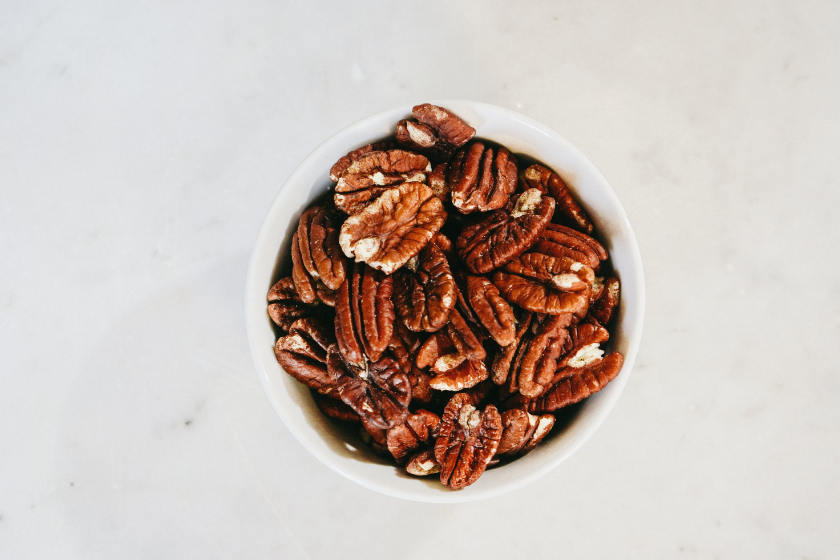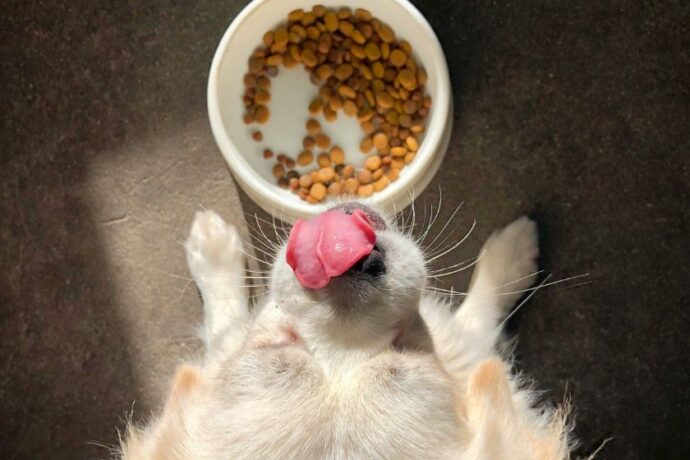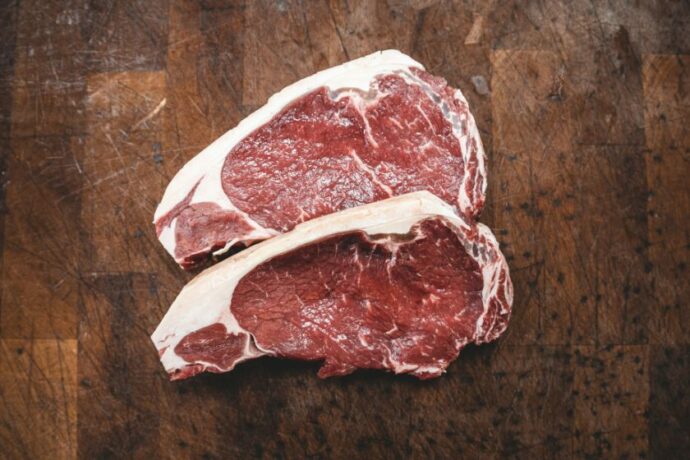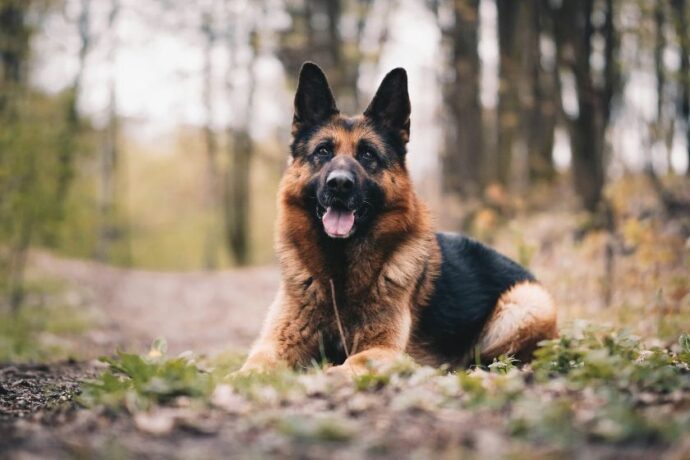
Some nuts are perfectly fine for dogs, but pecans are not included on that list.
Many dog owners make the mistake of assuming that pecans are safe for dogs, especially since other nuts like peanuts and cashews make perfectly fine snacks for furry friends. However, feeding your dog pecans would be a huge mistake.
Dogs Eating Pecans: Is It Safe?
Can dogs eat pecans? Here’s the simple answer: no. Pecans are not a suitable snack for your pup, even if they might enjoy the taste and texture of other nuts.
To fully understand why dogs shouldn’t have pecans, it’s crucial to learn about what happens when they eat these nuts. First, take a moment to consider all the different ways that pecans can be prepared.
How Can Pecans Be Prepared?
Pecans can be sold in bags and enjoyed when raw and plain, with salt added, or when candied. They can also be baked or cooked into a wide range of dishes. One of the most popular dishes cooked with pecans is pecan pie, which is a beloved fall dish often served at Thanksgiving dinners.
Raw pecans are unhealthy for dogs to eat all on their own. However, pecans with added ingredients or in the context of dishes can be dangerous for many additional reasons. That’s why a good rule of thumb is to avoid pecans altogether when it comes to offering your dog a snack.
Why Are Pecans Dangerous for Dogs?
Before we can explore why specially prepared pecans are unhealthy for dogs to eat, every dog owner should know why even raw, unsalted pecans can’t be included in your pup’s diet. Pecans contain a compound called juglone, which is also found in walnuts. As a side note, this is one of the main reasons why walnuts are also unsafe for dogs to eat.
What Is Juglone, and Why Does it Matter?
One of the most common symptoms of juglone consumption is improper digestion. This can cause any combination of vomiting, stomach pain, and diarrhea for your dog, depending on how much they ingest. Too much juglone could even result in death if your dog’s symptoms are not treated immediately.
Another unique characteristic of pecans is the types of compounds found in their mold. Just like many other nuts, pecans can become moldy if left for too long. This mold contains aspergillus, a compound that can cause even more serious symptoms than pecans themselves.
Mold can be difficult to spot on pecans, especially in its early stages. And even pecans that haven’t grown mold risk harming your dog’s well-being. The best course of action is to avoid feeding your dog pecans under any circumstance.
Symptoms to Watch For
By now, you understand as a caring dog owner to never intentionally feed pecans to your dog. However, accidents can happen, and dogs might end up eating foods that they should never eat. This is why it’s important to be familiar with the symptoms of toxicity due to juglone or aspergillus.
Some of the most typical symptoms of eating pecans for dogs are vomiting, difficulty eating or drinking, weak muscles, tremors, and seizures. If you notice any of these symptoms, you should take your dog to the nearest animal hospital as soon as possible.
How Many Pecans Can a Dog Eat?
Can dogs eat pecans at all without risk of fatality? If your dog only eats one or two pecans, it should be able to recover. However, a single pecan could be enough to cause a severe physical reaction, especially in smaller dogs with smaller digestive systems. That’s why you should keep a close watch over your dog for symptoms if they ingest even one pecan.
Pecan Alternatives for Dogs
While pecans might be off the table, other nuts are perfectly safe for dogs to enjoy in moderation. Peanuts and peanut butter are common snacks for pups. Additionally, cashews, almonds, and pistachios are also safe to feed to your dog.
Other nuts that don’t contain harmful compounds will give your dog the satisfying crunch they crave at snack time. However, to avoid choking, be aware of your dog’s usual eating habits, as well as the size, shape, and hardness of the nuts you’re feeding them. Pistachios and almonds in particular can be dangerous as their shape makes them easy to choke on.
Additionally, make sure your dog only enjoys nuts in moderation. Nuts are very high in fat, which can be healthy in small amounts but has the potential to cause long-term issues when eaten in excess.



